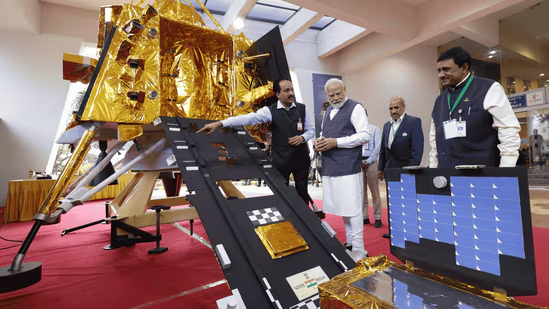11 october 2024 : The Cabinet Committee on Security (CCS), chaired by Prime Minister Narendra Modi, has approved Phase III of the Space-Based Surveillance (SBS) mission to enhance land and maritime domain awareness for both civilian and military purposes. The project is being managed by the National Security Council Secretariat in collaboration with the Defence Space Agency under the Defence Ministry’s integrated headquarters.
Although the government has not officially commented on the decision, it is understood that the CCS has approved the launch of at least 52 surveillance satellites in both low-earth and geostationary orbits. The project, with a budget of ₹26,968 crore, involves the construction and launch of 21 satellites by ISRO, while private companies will handle the remaining 31.
The SBS program was initiated under the Vajpayee government in 2001, starting with the launch of four satellites, including Cartosat 2A, Cartosat 2B, Eros B, and Risat 2. SBS 2 followed in 2013 with six additional satellites, including Cartosat 2C, 2D, 3A, 3B, Microsat 1, and Risat 2A. With the newly approved SBS 3, India is set to launch 52 satellites over the next decade, with each branch of the military having dedicated satellites for their specific land, sea, or air missions.
In January, the Modi government signed a letter of intent with France for the joint development and launch of military satellites. This initiative is part of India’s focus on enhancing its ability to detect enemy submarines in the Indo-Pacific region and monitor infrastructure development by adversaries along its land and sea borders.
The SBS 3 mission will also be supported by India’s acquisition of 31 Predator drones from US-based General Atomics, which provide advanced surveillance capabilities in addition to their weapon systems. India’s anti-satellite capabilities were successfully demonstrated on March 29, 2019, when a missile destroyed a live satellite in orbit.

